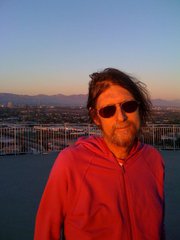 |
 |
| current issue |  | past issues |  | send a letter/news |  | address update |  | advertise |  | about us |  | alumni home |
Web Extras
|
The Message of Stieg Larsson's Trilogy
The themes in the best-selling books mirror actual events in Sweden By David Bartal '81G |
Easy to print version |
 |
Stieg Larsson's Millenium trilogy, now transformed into movies, is more than a good read and a worldwide publishing sensation. Sexual abuse of women and human trafficking is depicted with remarkable force in the international best sellers. Some people who have been fascinated by the story of feminist heroine Lisbeth Sahlander may not realize that the fictional themes in the books of right-wing conspiracies and violence against women mirror actual recent events in Sweden.
Lisbeth Sahlander, the Goth-like protagonist with a dragoon tatoo, wasn't created out of thin air. The author reportedly molded his physical description of Lisbeth on one of the women he worked with at anti-racist magazine Expo. Similarly, his depiction of the legal disenfranchisement of Lisbeth has a parallel in recent history. During the period 1935-76, an involuntary sterilization program robbed 60,000 Swedish people, mainly women, of their ability to have children. Their personal integrity was disregarded, and the women were sterilized. Although this is one of the most progressive and egalitarian places on the planet, Sweden also has a darker side not visible to the casual tourist.
The Millenium trilogy has a menacing plot revolving around a right-wing conspiracy. Those of us who have lived in Sweden for the past two decades know this is not entirely a fantasy. Larsson was a leading expert on the modern Far Right, and lived under physical threat from neo-Nazis. As the editor of anti-racism magazine Expo, he was a driving force in the battle against of the extreme Right; that was a central passion of his life. Stieg Larsson was also a committed feminist, and wrote a non-fiction book about honor killings of women, published two years before the thrillers came out.
One doesn't have to look far to find a possible real-life model for the fictional industrialist and millionaire Henrik Vanger, one of the books' main villains, who conceals a secret Nazi past. IKEA founder Ingvar Kamprad, one of the wealthiest people in the world, was in his youth a member of a pro-Nazi party.
Stieg Larsson's portrayal of a threat from modern Swedish Nazis may seem improbable to readers in faraway New England. .But the atmosphere of imminent violence and paranoia which pervades the novels truthfully mirrors the mood of this country in the late 1990s.
At that time, extreme nationalists marched in many towns and cities, and immigrants throughout the country lived in fear of being shot by a mysterious racist gunman dubbed, "The Laser Man," who used a rifle with a laser scope to shoot dark-skinned people. I wrote about those shootings for a British newspaper.
In October 1999, Leftist union leader Björn Söderberg was assassinated in his own home by militant Nazis. Police investigating the killing found photos of Stieg Larsson and his lifetime companion Eva Gabrielsson in the murderer's apartment.
One of Stieg Larson's closest friends and associates at Expo, who went under the assumed name Peter Carlson because of threats on his life, was injured when his car was firebombed, presumably by vengeful neo-Nazis. I interviewed "Peter" shortly thereafter in a Stockholm bar for an article about White Power music; he was still afraid. There were a few other acts of murderous violence by the Far Right during the early 1990s. It was a bizarre time, when rightists held a mass demonstration in Stockholm once a year in November, to commemorate the death of a certain Swedish king.
Nowadays, one rarely sees young men bearing special clothing marking them as neo-Nazis marching publicly. On the other hand, an anti-immigrant party which calls itself the Swedish Democrats (Sverigedemokraterna) won seats in the national parliament for the first time in September 2011 elections. The extreme right is a very small part of the Swedish population, but they do exist.
Stig Larsson of Sweden dedicated his life to the battle against social injustice and right-wing extremism. This commitment permeates the lively and entertaining narrative in his three Millenium novels, and gives the books a special resonance to those of us who know a bit about the special time and place where they were created.
David Bartal '81G has lived in Sweden for the last 25 years. He arrived there just in time to cover the assasination of Prime Minister Olof Palme for a Canadian news weekly. Since then he has been a stringer for U.S. News & World Report and The Times of London and worked for a Swedish financial paper. He is the author of two books, including The Empire: The Rise of the House of Wallenberg . Currently he freelances primarily with European magazines on popular culture.
Easy to print version
blog comments powered by Disqus

